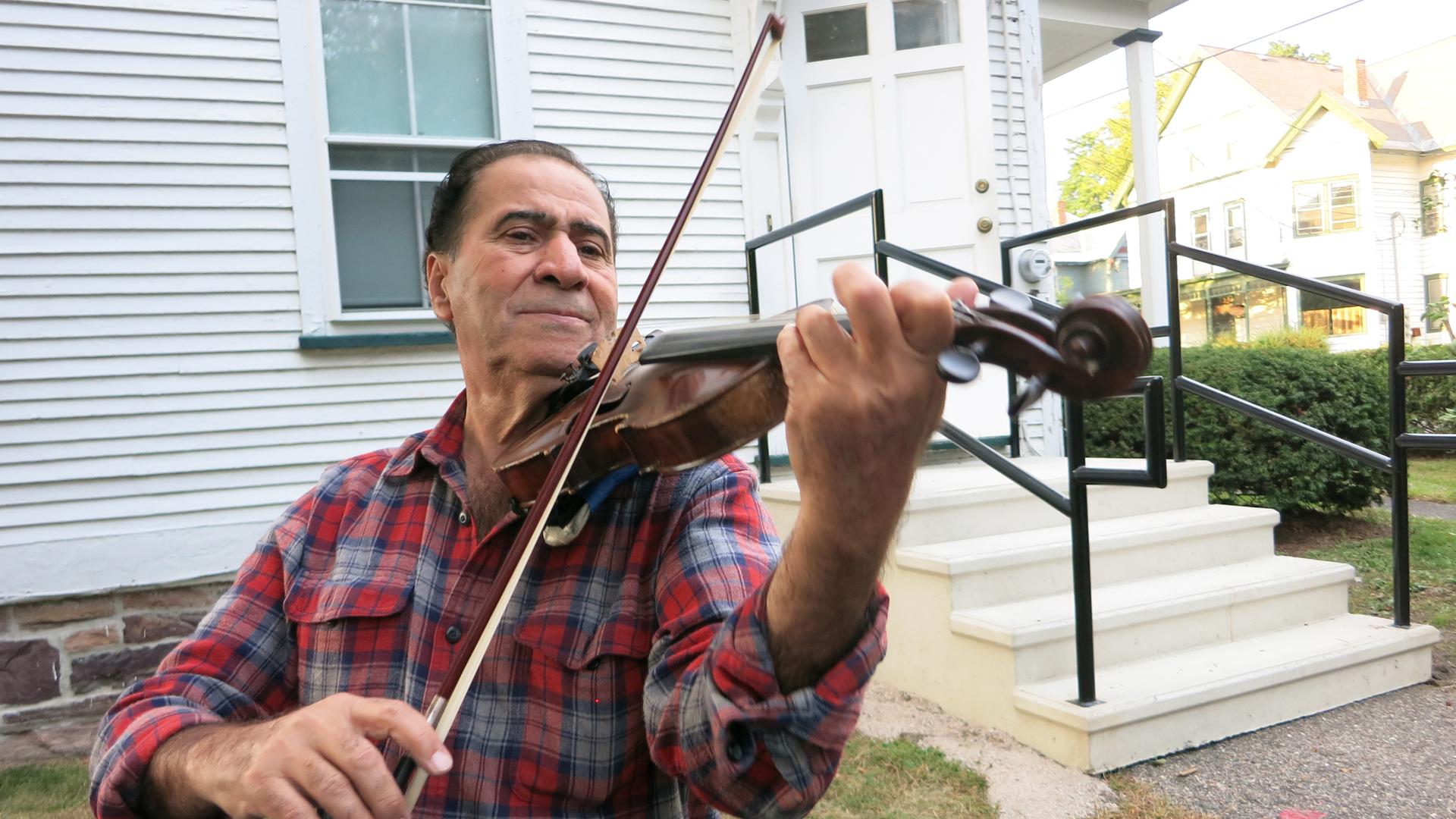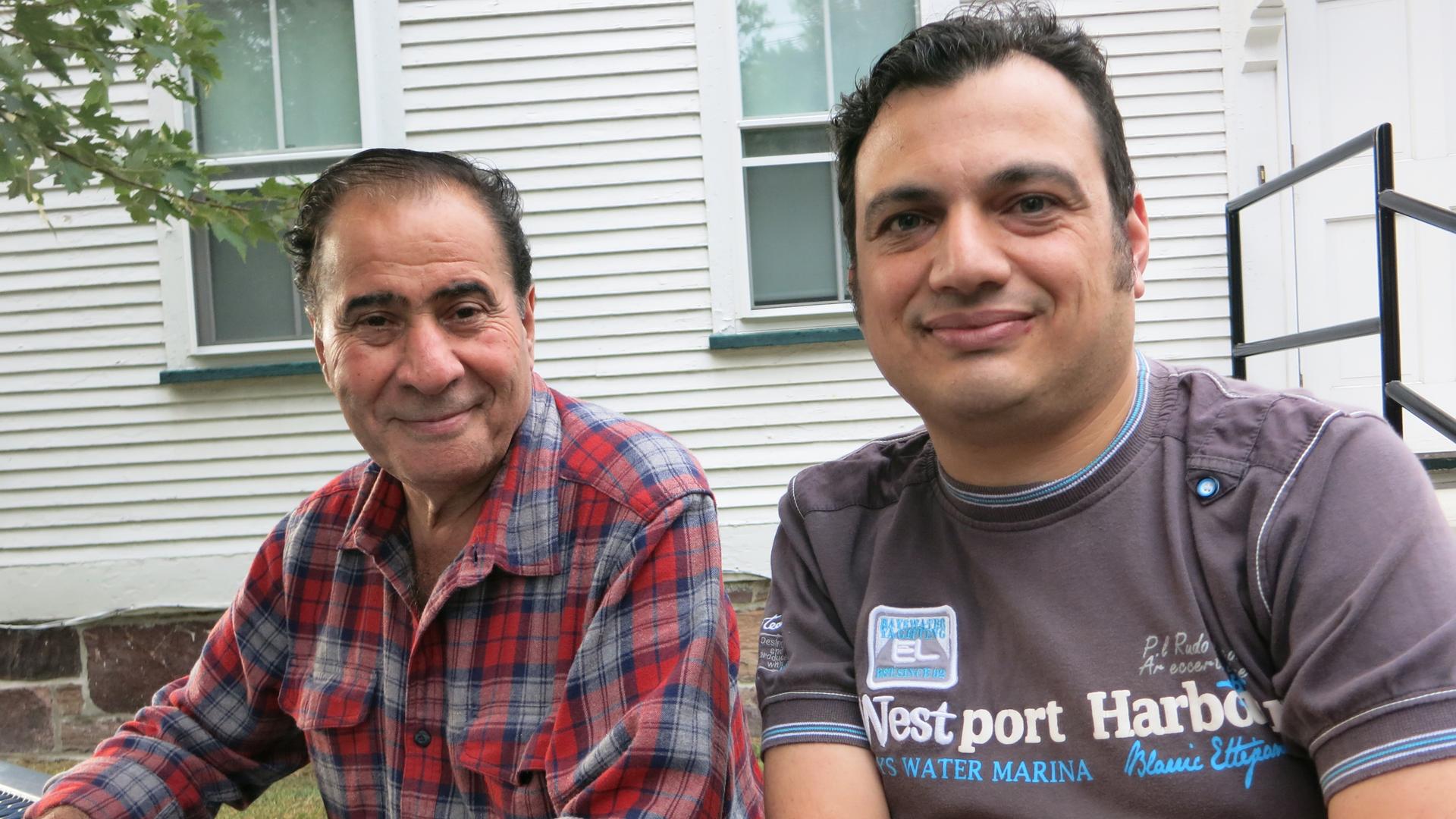Anwar Diab Agha (left) and Ashraf Alamatouri are two of Vermont’s newest Syrian transplants.
It's not easy to find a Syrian refugee living in Vermont. In fact, it's impossible — the state has zero Syrian refugees living there.
But at least three families from Syria do call Vermont home. Among them is Ashraf Alamatouri, who lives in Burlington with his wife and three young children. Because Syrians are so rare here, Alamatouri says when most people meet him, they're stumped.
"Usually, people, just to open a conversation say, 'Where are you from? Are you from Italy? My ancestor came from Italy,'" says Alamatouri. "They mention many countries, then I have to tell them I'm from Syria, in the Middle East."
Alamatouri came here five years ago as a Fulbright Scholar. He remained in Vermont under what's called Temporary Protective Status. The Department of Homeland Security has approved applications for almost 3,000 Syrians to remain in the US this way. Under that program, the US currently allows nationals from 13 countries to remain in the US — temporarily, as the name implies — because their countries are potentially too dangerous due to war, disaster, or a health epidemic.
Alamatouri was an English professor back in Syria, but his university was bombed. And, it wasn't safe for him to return for other reasons. "When I came here, I had really opposed the Syrian government with my political opinions."
Alamatouri's first job here was in sales at a Sears. He quickly found another position working with the Vermont Refugee Resettlement Program coordinating its English classes. He says he enjoys the work and says he'd like to remain there, but he would also like to teach at a university again.
Alamatouri talks about how much he loves the US and Vermont. But he adds that for people starting over in a new country, refugees or others living under temporary protected status, it's challenging.
"Because you are who you are there, but here, you need to start from the beginning."
There's also potential animosity to contend with: a lot of Americans are wary or unwilling to accept more Syrians. I asked Alamatouri about the idea that accepting Syrians into the US could allow Muslim extremists to enter the country. Alamatouri says refugee arrivals are subjected to tough background checks. And he adds, Syria is a mosaic country.
"In Syria we have about 23 different cultures and religions."
Alamatouri describes himself as a secular Druze, a monotheistic religion with some roots in Islam. Druze are considered heretics by both Sunni and Shia Muslims. ISIS has given Syria's Druze a choice: convert to Islam or be killed.
I asked Alamatouri if Syrians fleeing their country would prefer to settle in the US, Europe, or a neighboring Middle Eastern nation. He says Syrians still look to the US as a land of opportunity and a country built by immigrants, but right now, Syrians aren't picky.
"When a family is fleeing the war, usually it's not about what country is better than the other, it's where can I find a safe place for my children, where their children can be raised as any other kids."
This desperation has led to a wide diaspora of Syrians. Another Syrian living in Vermont is 77-year old Anwar Diab Agha from Damascus. He speaks limited English, but knows some key phrases to get by. For example, when we met, he blurted out with an expansive grin, "I love America."
Agha was a violinist and composer in Syria, part of the Syrian National Radio and Television Orchestra. He now lives in Vermont with a daughter and has another in Canada and one in Texas. He also has five sons spread across the globe.
"Two in Syria, Damascus, and one in Germany, and one in Fort Lauderdale, and one here," Agha says.
I asked him if he worries about his sons in Syria, where an estimated 220,000 people have been killed according to the United Nations. He switched between Arabic and English.

"My God," he says, looking up toward the sky.
Alamatouri interpreted: "I pray to God to save all Syrians because they are friendly people."
Agha added, "Very good people."
What else can you say at that point? I thanked the two men for their time. Then, Agha said he wanted to play his violin for us.
He played a song from back home. It was a pleasant, unexpected moment — the three of us sitting outside on a fall day in leafy, green downtown Burlington, about a million miles away from Damascus.
